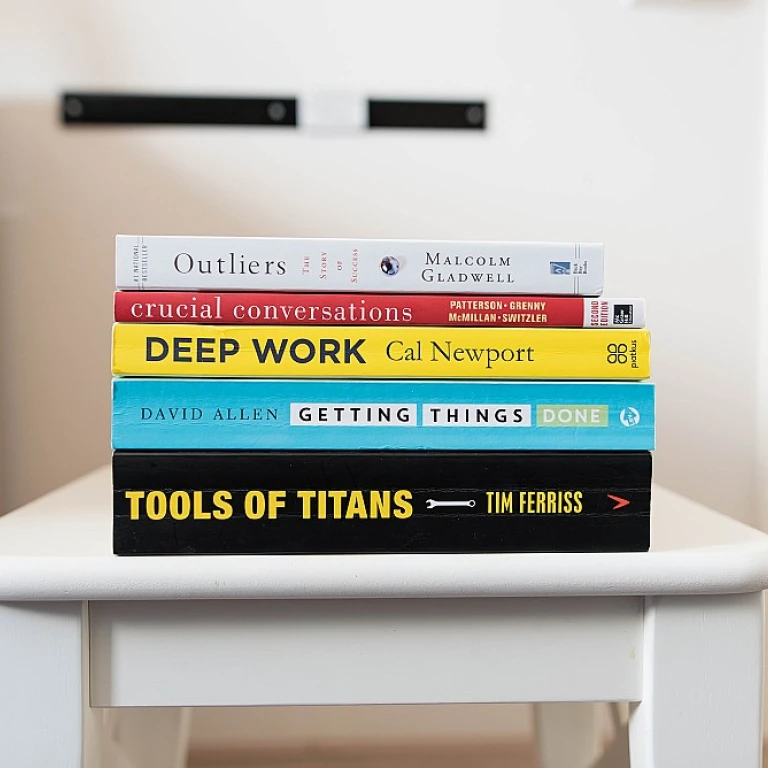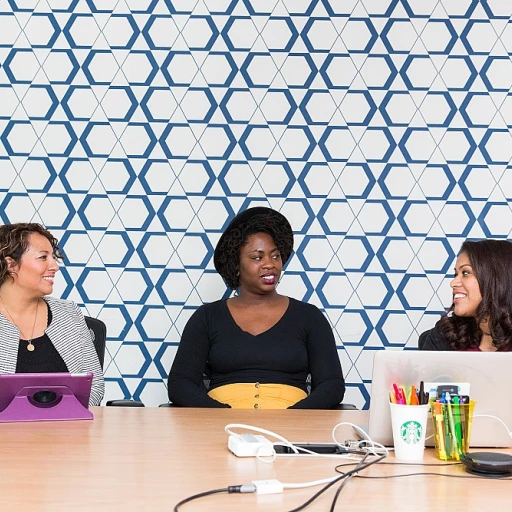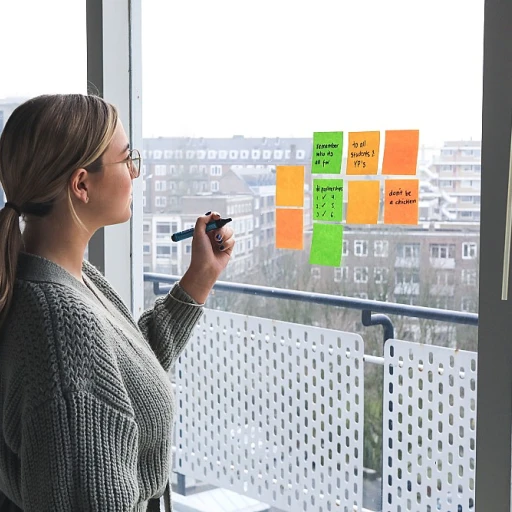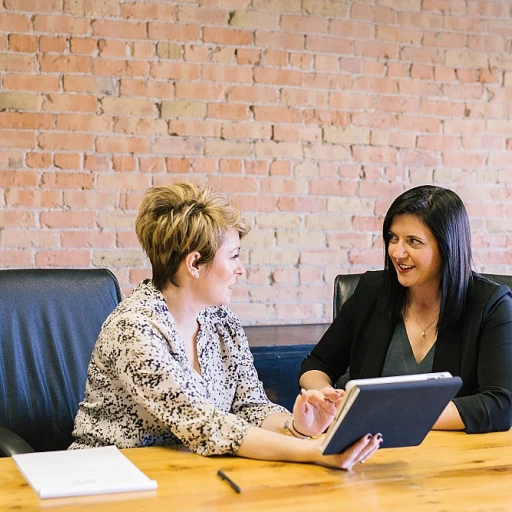
Understanding the Core of the 7 Habits
Delving Into the Essence of Highly Effective Habits
The idea of mastering the "7 Habits of Highly Effective People" revolves around adopting key behavioral patterns that significantly enhance personal leadership. Originating from the seminal work by Stephen Covey, these habits serve as a framework for personal and professional success. Understanding these habits is fundamental to becoming highly effective both in life and work. These habits, often regarded as timeless principles, focus on aspects such as proactivity, forward-thinking, and cooperative behavior. As personal anecdotes from effective individuals across various sectors indicate, the impact of these habits is profound, fostering clearer direction, better relationships, and elevated performance.- Proactivity enables individuals to take initiative, moving beyond passive responses.
- Beginning with the end in mind ensures goal orientation with clarity of purpose.
- Putting first things first emphasizes prioritization and effective time management.
- Thinking win-win cultivates mutually beneficial relationships, promoting collaboration.
- Seeking first to understand, then to be understood highlights the importance of empathetic communication.
Habit 1: Be Proactive - Activities to Cultivate Initiative
Cultivating Initiative Through Activity
Developing the habit of being proactive involves more than just taking action. It’s about adopting an effective mindset that emphasizes responsibility and foresight. Highly effective people harness the power of this habit to lead their lives toward meaningful paths.One engaging way to cultivate this habit is through a simple yet insightful activity: creating an emotional bank account. By envisioning their current interactions as deposits or withdrawals, individuals can visually assess their relationships. This activity will help them spend time reflecting on how their proactive actions contribute positively to their personal and professional lives.
Another form of initiative cultivation is through role-playing scenarios. By setting up common challenges, participants can practice proactive solutions and consider win-win situations. This develops their decision-making skills and aligns with the principle of seeking to understand solutions effectively. Whether this involves workplace disagreements or personal dilemmas, role-playing allows participants to watch their proactive creativity come to life.
For those who enjoy media, spending some time engaging with resources such as a good book or an insightful video can shed light on proactive habits. One such resource is exploring empowering songs that inspire leadership. Music can be a powerful medium to evoke proactive thinking and encourage listeners to implement new tactics in their daily routine.
Additionally, vision boards can be an innovative and personal way to express how proactive habits will shape one's future. It’s not just for kids or 'happy kids' activities, but a creative exercise that helps clarify goals and visualize successful outcomes, crucial for personal leadership and leading others.
To round off proactive habit development, effective time management techniques allow for a structured approach to mastering this habit. These strategies ensure productive focus and prioritization, paving the way for further success in other habits highly valued by effective individuals.
Habit 2: Begin with the End in Mind - Vision Crafting Exercises
Vision Crafting Activities for Aligning with Long-Term Goals
Engaging in exercises that help to visualize and define one's ultimate goals can be a life-changing experience. Developing the habit of clear and purposeful thinking is essential to aligning daily actions with long-term aspirations. Here are some activities that can be beneficial.- Personal Mission Statement: Consider drafting a personal mission statement. This document serves as a compass, reflecting what is most important to you—your values, priorities, and future desires. The act of writing such a statement can clarify intentions and serve as a constant reminder to stay on track.
- Vision Board Workshop: Creating a vision board can be a fun and enlightening activity for adults and kids alike. By cutting out words and images from magazines that represent individual dreams and ambitions, one can construct a visual representation of their desired future. Regularly reviewing and updating this vision board keeps goals fresh in mind.
- Time Travel Writing Exercise: This involves writing about a day in your ideal future life. Detailing not only where you are, but what you are doing, whom you are with, and how you feel. This immersive exercise helps clarify what you truly aspire to achieve.
- Goal Setting Workshops: Participating in workshops that focus on goal setting is invaluable. These workshops often explore smart techniques for crafting achievable goals, ensuring they are Specific, Measurable, Achievable, Relevant, and Time-bound.
- Mentorship and Feedback: Seeking guidance from a mentor or a knowledgeable peer can offer new perspectives on your vision and goals. Engaging in dialogues about personal ambitions not only builds collaborative relationships but can also enrich the vision crafting process.
Habit 3: Put First Things First - Prioritization Techniques
Mastering Prioritization for Effective Leadership
In the journey of mastering the habits of highly effective people, prioritization is a cornerstone. Stephen Covey emphasizes the importance of putting first things first, a habit that can significantly enhance your leadership skills and personal life. This habit is not just about managing time but about managing yourself. It involves identifying what truly matters and dedicating your energy to those priorities.
To cultivate this habit, consider engaging in activities that help you focus on what is most important. Here are some techniques to help you prioritize effectively:
- The Eisenhower Box: This time management tool helps you distinguish between what is urgent and what is important. By categorizing tasks, you can focus on activities that align with your long-term goals, rather than getting caught up in the urgency of the moment.
- Weekly Planning Sessions: Spend time each week reviewing your goals and planning your activities. This will help you align your daily actions with your broader objectives, ensuring that you are consistently working towards what truly matters.
- Mindful Reflection: Regularly reflect on how you spend your time. Are you investing in activities that contribute to your personal and professional growth? This reflection can help you adjust your priorities and focus on what will bring the most value to your life.
By integrating these techniques into your routine, you will learn to manage your time more effectively, leading to a more balanced and fulfilling life. Remember, the key to mastering this habit is consistency and a willingness to adapt as your priorities evolve.
Habit 4: Think Win-Win - Building Collaborative Relationships
Building Strong Communication Foundations
Engaging activities that focus on enhancing communication skills are crucial for effective leaders. As outlined in the highly influential work by Stephen Covey, understanding others first before being understood yourself is a fundamental habit of successful and effective people. Here are several activities to sharpen these skills:- Active Listening Sessions: Organize small group sessions where participants practice active listening. One at a time, each group member shares a life story or a personal experience. Other members focus solely on listening without interrupting, ensuring full comprehension before offering any feedback. This activity encourages the habit of truly seeking to understand.
- Emotional Bank Account Deposits: Encourage people to build positive interactions by making "deposits" into each other’s emotional bank accounts. Acts of kindness, positive affirmations, or expressing gratitude are effective ways to enhance trust and understanding, fostering a happier work environment.
- Role-Playing Scenarios: Use role-playing activities where participants have to navigate through challenging communication scenarios. This habit-enhancing exercise allows individuals to practice empathy and improve their problem-solving skills, vital for creating win-win situations.
- Feedback Culture Development: Establish a feedback culture where constructive criticism is encouraged. Providing and receiving feedback without judgment helps people grow and cultivate highly effective leadership communication habits.













